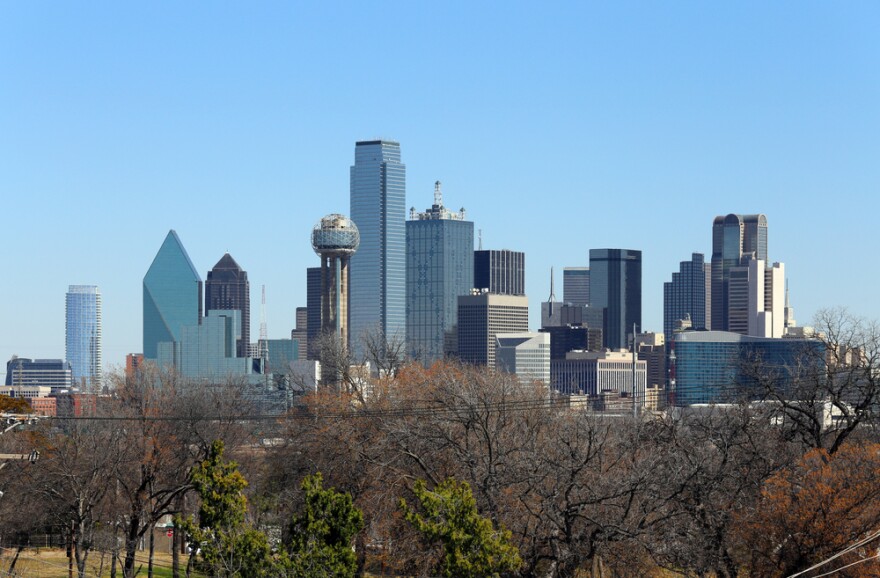Dallas hosted two big events in recent days -- the New Cities Summit, which attracted hundreds of scholars and planners, and the U.S. Conference of Mayors, which brought in more than 200 mayors from around the country.
KERA’s Shelley Kofler recaps a big week for Dallas – and what it means for Big D.
What’s the impact of these two events?
One result is a nice boost to the Dallas tax base. The Dallas Convention and Visitors Bureau says the events brought 2,500 people into the city. They spent several million dollars while they were here and that generated about $330,000 in local tax revenues, which isn’t bad for a week’s worth of work.
A chance to show off the city
Dallas Mayor Mike Rawlings has said it was a great opportunity to show off the city. He was especially excited about the international journalists here for the New Cities summit. He wants Dallas to become a global destination, like Paris or New York. The Dallas Convention and Visitors Bureau says the summit generated over 300 global media stories, most of them positive. Officials say that if they had to buy advertising to equate to that type of coverage, it would cost $9.5 million.
Serious policy discussions
U.S. Secretary of Education Arne Duncan was here. EPA Administrator Gina McCarthy discussed climate change. The commissioner for U.S. Customs and Border Protection met with mayors to talk about the wave of unaccompanied children from Central America flooding over the Texas-Mexico border. Cities know it may fall to them to take care of these kids – and perhaps educate them.
Though there’s a lot of pushback against illegal immigration in Texas, Arlington Mayor Robert Cluck told KERA’s Stella Chavez that a humane solution is needed.
“We all have to work at it in a logical way,” Cluck said. “These are human beings, by the way, and they do have the same feelings that you have and I have. They do have the same worry about food, health and we need to help them in a positive way, but yet solve the problem.”
Talking about education
The mayors talked a lot about education, even though they don’t usually run school districts. They’re frustrated because an increasingly diverse and poor group of teens is dropping out of school. That affects a city’s economy and the available workforce. KERA’s Bill Zeeble covered that issue and heard from a number of mayors, including Boston’s Martin Walsh.
“As mayor I have to push the superintendent,” Walsh said. “I have to push the school district. I have to push to make sure our quality of education gets better. Generation after generation, there’s been a lot of talk about how we’re going to fix the school system. We have to act because generation after generation of kids have been shortchanged in this country.”
Mayors walked away from that discussion with a new tool developed by the Bush Institute. It’s an online education report card that will allow the mayors to compare achievement scores, graduation rates, and programs that are working in other communities.
The minimum wage
Mayors discussed about the federal minimum wage, which is $7.25 an hour. It’s hard to feed a family on that, but Congress has resisted raising it. So many cities and 22 states have acted individually to raise their own minimum wages. At the mayors conference, Dallas Mayor Mike Rawlings said he wants the Dallas City Council to talk about requiring city contractors to pay their employees more than the federal minimum.
“So many individuals work in entry-level positions of our concessionaires,” Rawlings said. “Do we as a city want to spend the money and make sure they get a leg up? Or are we trying to get it as cheap as possible for taxpayers, for citizens, for the city of Dallas. That discussion needs to be had.”
What happens next?
The U.S. Conference of Mayors will take all of these discussions to Capitol Hill. The mayors passed more than 100 resolutions for everything from tax credits for renewable energy to more money for veterans’ services. Those resolutions become the mayors’ blueprint for lobbying Congress. They believe if they make a lot of noise together they can put pressure on Congress to act.







